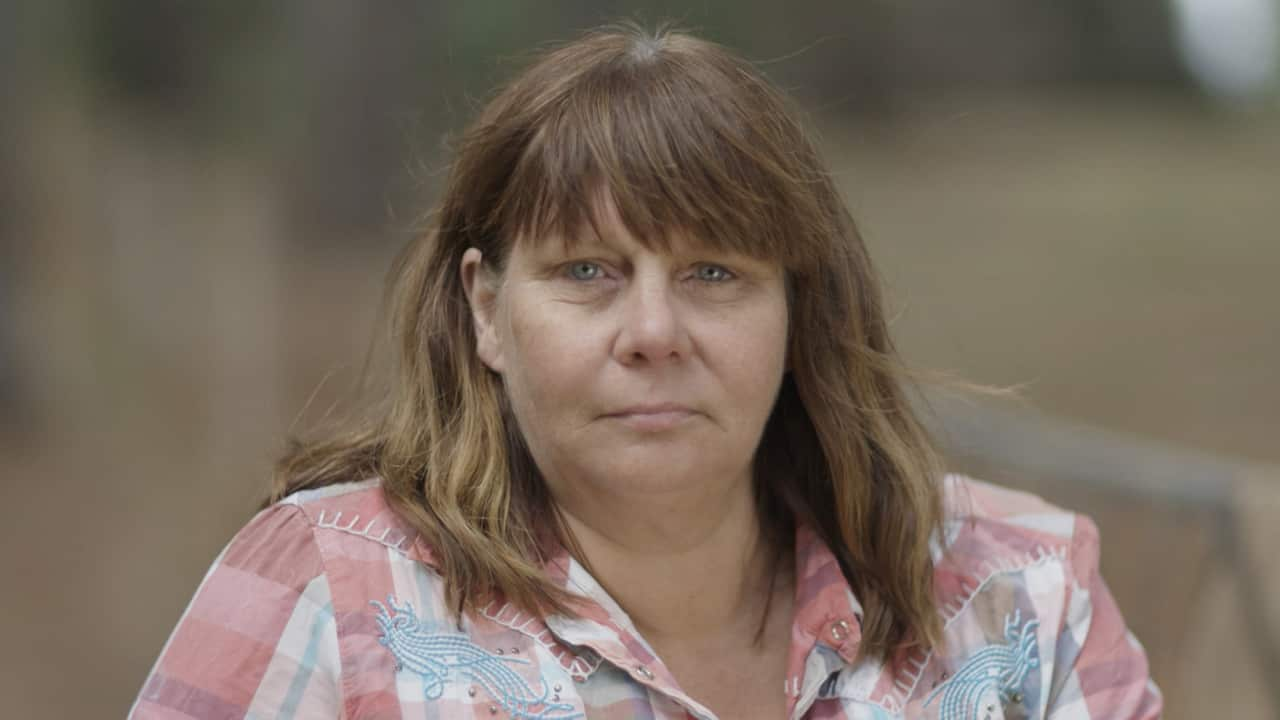Insight finds out what people who are under cost of living pressures are expecting from the Government in this election? Watch the episode, Cost of Living, Tuesday April 30 at 8:30pm on SBS and SBS On Demand.
On a typical weeknight in the Queensland town of Ipswich, 43 year old Kirstie Fildes and her two teenage children sit down to a meal prepared by Kristie’s parents.
It’s a scenario the single parent and childcare worker isn’t particularly comfortable with but has been doing more often than usual.
It’s because the rising cost of living means Kirstie sometimes can’t afford to buy food.
“The electricity bills, my recent one was 500 plus dollars … So that left my bank account just completely wiped out and my parents were actually feeding us that week.”
“My parents are both retirees, they shouldn't be put in that position,” she says.
Kirstie has been working in childcare for 19 years. It’s a sector plagued by low wages with workers getting around half the average weekly earnings of other professions. The average hourly rate is $22 and has gone up by just $10 since Kirstie started. She says those low wages have taken a toll on her ability to keep up with expenses.
“Things like rent, things like food, things like medicine, electricity, all those things add up and the wages just aren't stretching to cover everything,” she says.
Over the last 10 years, wage growth across the board has steadily declined to historic lows.
Labor announced a policy promise to increase the pay for child care workers if elected, and that’s something Kirstie says will sway her vote.
“If Labor gets in, it would definitely make a big difference for myself and my colleagues in early childhood.”
The money’s good when the work is there, and if the hours are long, but if it’s not there, we all struggle.
***
Two- thousand kilometers away in Gippsland, Victoria, Jenny Downs is skeptical politicians can make a difference to her situation.
For the past four years, she’s been a casual traffic controller and gets a text message every afternoon to tell her whether she has work the next day.
“Sometimes we might not get these jobs until seven or eight o'clock at night,” she says.
The 50 year-old often wakes at 4.30 in the morning to drive an hour away for her shift, which can range from two to twelve hours. She sometimes doesn’t even know where she’ll be working.
“The money’s good when the work is there, and if the hours are long, but if it’s not there, we all struggle.”
Being casual, she has no sick or holiday pay and worries about falling ill or taking a long weekend.
“They just say, ‘Oh we’ll give [the shifts] to someone else. There are plenty of other ones out there that will take on the work,” she says.
“We feel like we’re getting penalised for having a life.”
Last year Jenny fell at work and damaged her knee. She’s now on workers’ compensation which means her pay is down $1000 a week. And without the benefits that come with a full time position, she’s not sure she’ll have a job when she’s well enough to work again.
“My future is very uncertain now,” she says.
She’s also disenchanted by politicians.
“We're sick and tired of them saying one thing, and doing another,” she says.
“The trouble is by the time they put anything through, are they still going to be in government?”
She’s drawn more to the minor parties particularly Pauline Hanson’s One Nation.
“She does say a lot of things that I think a lot of Australians do think, but aren't game enough to say,” she says.
Despite this, she still hasn’t decided how she’ll vote.

***
In Brisbane, business analyst Shannon Marsh, 43, is finding it difficult to manage the cost of living too, despite being a high income earner.
Her most recent electricity bill was $1,400 for the quarter. Given they have solar it’s about $500 more than she was expecting.
“We are struggling across every facet,” she says.
In the past 10 years, electricity prices have soared by 117 per cent.
Shannon’s house is also a ‘smart home’ which runs all devices and appliances through applications.
While the technology has allowed her and her family to monitor their energy consumption, and make changes to reduce it, their bills are still high and they’ve had to cut back.
“We just don’t have the disposable income that we used to have previously.”
“Food has definitely taken a reduction. We’re being smarter about our shopping so we’ve had to be very specific on where we spend our money,” she says.
Both major parties have announced policies to reduce electricity bills, and the Liberals say their plan to set a default offer price for customers will help reduce bills in Shannon’s area by $600 a year.
While solving electricity prices is important to her, her decision to vote Liberal is based on other factors.
“I think they have some really strong economic policies in place,” she says. “They have also delivered in terms of delivering our budget back to a surplus, or so they say, and that's something that they've promised to do.”
Insight is Australia's leading forum for debate and powerful first-person stories offering a unique perspective on the way we live. Read more about Insight
Have a story or comment? Contact Us


